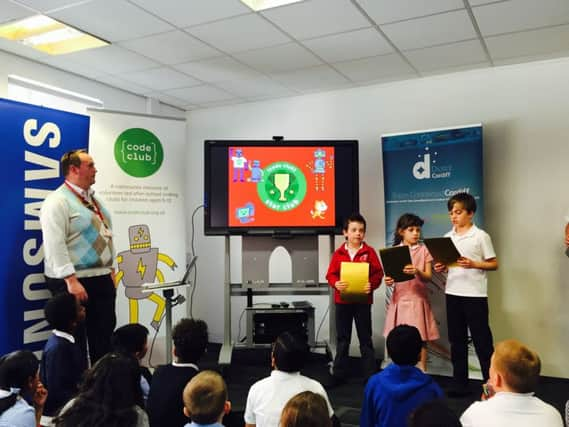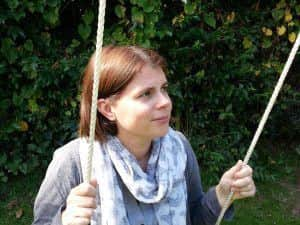Scots tech expert leads drive to get more girls into science


A leading technology expert is on a mission to encourage more girls to become the scientists and computer programmers of tomorrow – starting in primary school.
Lorna Gibson, who worked in the computer department of a Scottish university before having two sons, said she felt she had no choice but to give up her career in academia after struggling to work part-time in the male-dominated sector.
Advertisement
Hide AdAdvertisement
Hide AdThe 37-year-old is now an honorary researcher at the University of Dundee and co-ordinator for Code Clubs in Scotland – a scheme that encourages children to gain more digital experience – and is leading the drive to encourage more girls to take up science, technology, engineering and mathematical subjects (STEM).


Ms Gibson is one of a number of key speakers who will take part in a conference in Edinburgh later this month looking at ways to encourage girls to get involved in the world of science and tech.
The event, hosted by Accenture, will give secondary schoolgirls the chance to try their hand at coding in a “STEMettes” sponsored hackathon.
They will also watch a video message from inspiring female role models, including US presidential hopeful Hillary Clinton and media mogul Oprah Winfrey.
A recent survey found that 60 per cent of girls aged 12 in the UK feel that STEM subjects are too difficult for them to learn.


Last July, the UK Commission for Employment and Skills said that 43 per cent of vacancies in STEM roles were hard to fill due to a shortage of applicants with the required skills.
Ms Gibson, from Fife, said: “I worked in a computing department and objected to the whole ‘girls in computing’ thing, because I didn’t feel any different to the men sitting next to me.
“It was only when I went on to have children and wanted to do part-time work that I realised the support isn’t there.
Advertisement
Hide AdAdvertisement
Hide Ad“When you are working in an environment that is typically male, it makes it hard for them to get their head around it, why you couldn’t change your days to come in for an important meeting, they don’t understand childcare problems.”
Ms Gibson’s role as co-ordinator for Code Clubs in Scotland involves her working with some 150 groups across Scotland which cater for nine to 11 year olds. The number of clubs has grown significantly in the past four years, with events and meetings staffed mainly by volunteers and teachers, operating in schools, libraries and community centres.
“What’s interesting is that at primary school, girls make up around 40 per cent of the Code Clubs, when you get to high school you are lucky to get 10 per cent,” Ms Gibson said.
“It is so important for young girls to see other girls taking part in these classes, to be taught by women and to have positive female role models.
“Hopefully, the more girls come through the Code Clubs in primary school, the more will go on to study STEM subjects in secondary.”
On 28 January, around 150 girls aged between 11 and 15 from Edinburgh will attend a Girls in STEM event at the National Museum of Scotland.
The event aims to encourage more girls to get interested in STEM careers.
It will feature a speech by Dr Raeanne Miller, a young Scottish scientist who has been chosen for a unique women-only Antarctic exhibition
Advertisement
Hide AdAdvertisement
Hide Ad“It is a serious concern that girls may believe that STEM subjects are too hard to learn or a male-only domain. Therefore, the aim of our event is to showcase the applicability of these skills through interactive workshops,” said Bill McDonald, managing director for Accenture Scotland, who is organising the event.
“The speakers and workshop aim to inspire girls and educate them about the amazing possibilities open to them,” he added.
Lucy Murdoch, managing director, sales and customer services, at Accenture Scotland, said it was important to instil a “can do” attitude in girls living in Scotland.
She said: “To increase the number of women in STEM careers we need to accelerate existing initiatives and introduce more to tackle the issue.
“We need to future-proof our own talent pipelines and this must start from the very earliest stages of education to instil the ‘can do’ attitude in our girls that they have the ability to excel in STEM subjects and go on to enjoy fruitful careers in the sector.”